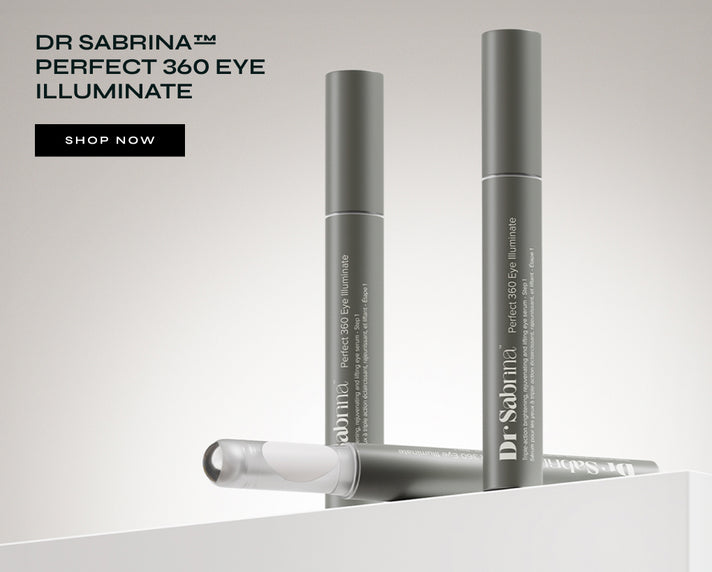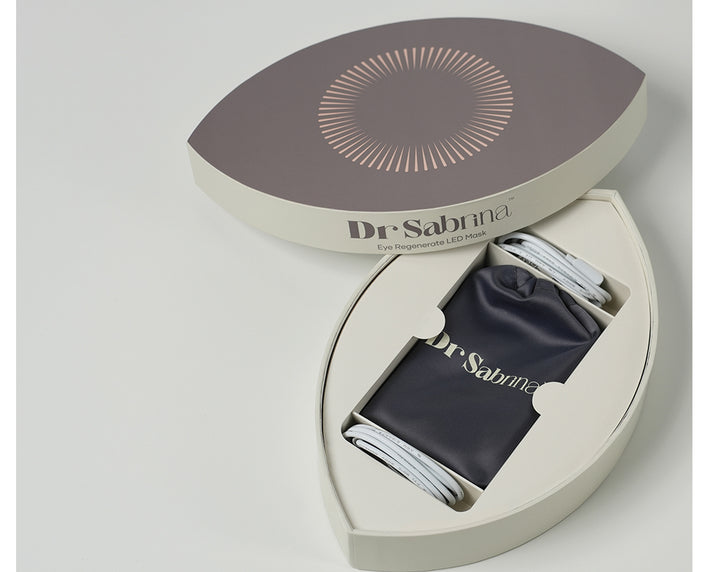Eye Serum
Why does sunscreen burn my eyes?

Why do my eyes feel on fire every time I apply sunscreen? If you've ever asked yourself this question, you’re not alone. Many people experience eye stinging, watering, or even redness after applying sunscreen, especially around the face.
According to a 2021 survey by the Environmental Working Group (EWG), EWG’s 2025 Guide to Sunscreens indicates that nearly 80% of reviewed sunscreens contain either inadequate UV protection or a potentially problematic ingredient.s
Let’s explore why sunscreen burns your eyes, what ingredients are the culprits, and how to protect your skin and eyes without discomfort.
Why Does Sunscreen Burn My Eyes?
The burning sensation in the eyes after applying sunscreen is usually caused by the chemical filters in many conventional sunscreens. Most chemical filters can easily migrate into the eyes this can happen via sweat, tears, or by touching/rubbing your face.
The most common chemical offenders are:
-
Oxybenzone
-
Avobenzone
-
Octinoxate
- Homosalate
These chemical filters absorb UV radiation and convert it to heat. They work great for preventing sunburn, but once they contact the sensitive mucous membranes of the eyes, irritation may occur.
Even when you vigilantly avoid applying sunscreen too close to the eyes, once the day goes on, you may sweat and inadvertently carry the chemicals across your eye area. This is especially true when exercising or in hot conditions.
Why Do My Eyes Burn When I Apply Sunscreen?
Let’s break down the reasons:
- Thin, sensitive skin around the eyes is thinner and more fragile than anywhere else on the face.
- Tear ducts: The tear duct pathways are great routes for tiny particles to enter the eye.
- Blinking or rubbing the eyes: Even the tiniest amount of contact after applying sunscreen, can unknowingly transfer sunscreen onto the eyelids and lashes.
It’s probably not an allergy - more likely chemical sensitivity or irritation.
Is It Just Sunscreen in Eyes, or Something More?
If you regularly experience stinging, tearing, or discomfort even when applying SPF carefully, you may want to explore:
-
Contact dermatitis: A localised skin reaction causing redness, itchiness, or inflammation.
-
Rosacea or eczema: Individuals with these skin conditions may find sunscreen burns their face, not just their eyes.
-
Eye drops or medications: Some eye medications can make your eyes more sensitive to topical products.
Before applying it to your face, consider patch-testing any new sunscreen on your inner arm.
How to Prevent Sunscreen from Burning Your Eyes
Here are dermatologist-approved tips to keep SPF where it belongs and avoid the dreaded sting:
Go for Mineral Sunscreen:
Natural or physical sunscreens include zinc oxide and titanium dioxide. These ingredients naturally sit on top of the skin and reflect UV rays without the risk of chemical filters burning your eyelids. Mineral-based sunscreens are usually recommended as the best SPF for face when there is potential for sensitivity.
Avoid the Eyelid Margin Area:
Only apply SPF on the skin of the orbital bone (bony eye socket rim). You can feel the bone if you lightly press around your eye socket.
Use an Eye-Safe SPF Formulation:
Some brands have developed new SPF sticks or creams that are either ophthalmologist-tested or intentionally designed for use around the eyes.
Allow Sunscreen to Absorb:
Give sunscreen at least 10-15 minutes to absorb before sweating, applying cosmetics, or going outside.
Use Physical Barriers:
Wearing sunglasses and a wide-brimmed hat is another way to protect yourself from the sun while keeping the chemical SPF out of your eyes.
Different parts of the face have different sensitivity levels. The eye contour skin is very absorbent, and the tear film is uniquely sensitive even to slight pH changes. This means that, for example, your skin could tolerate chemical SPF quite well, but your eyes may not.
Why Does SPF Sting My Eyes, But Not My Skin?
Different parts of the face have different sensitivity levels. The eye contour skin is very absorbent, and the tear film is uniquely sensitive even to slight pH changes. This means that, for example, your skin could tolerate chemical SPF quite well, but your eyes may not.
Pro Tip: Sunscreen Before or After Makeup?
A common question is whether to apply sunscreen before or after makeup. The correct method is to always apply sunscreen before makeup to ensure it forms a protective layer on your skin. Then, you can follow your usual makeup routine.
What if sunscreen has already been put in your eyes?
- Rinse your eyes with running, cool and clean water.
- Do not rub!
- You can apply any sterile eye drops if you have them on hand.
- If inflammation doesn't lessen after a few hours or worsens, seek proper medical advice.
Consider Alternatives: SPF-Infused Products
If you're still struggling, look into SPF-infused moisturisers or eye serum with built-in sun protection. These are usually gentler a4nd can offer dual benefits: UV protection and skincare.
Final Thoughts: You Can Protect Without the Pain
If sunscreen burns your eyes, it doesn’t mean you have to ditch sun protection altogether. It just means you need to be more mindful of:
-
The type of SPF you use
-
Where and how do you apply it?
-
Choosing eye-safe alternatives
Sun protection is non-negotiable, especially if you care about ageing, pigmentation, and long-term skin health. With the right approach, you can protect your skin and spare your eyes from burns.
FAQs
1. Why does sunscreen burn my eyes even if I don’t apply it near them?
Sweat or natural oils on your skin can carry sunscreen ingredients into the eye area, even if you avoid direct application. Chemical sunscreens, in particular, can migrate more easily than mineral sunscreens, leading to irritation and stinging.
2. Which type of sunscreen is best to avoid eye irritation?
Mineral sunscreens with zinc oxide or titanium dioxide are generally better for sensitive skin and eyes. They sit on the skin’s surface rather than being absorbed, reducing the chance of stinging or running into your eyes.
3. What should I do if sunscreen gets into my eyes?
Rinse your eyes gently with cool, clean water. Avoid rubbing, as this can worsen irritation. If discomfort persists after rinsing, use lubricating eye drops or consult a doctor if necessary.
4. Can I use the same sunscreen on my body and face?
Not always. Many body sunscreens contain higher concentrations of active ingredients that may not be suitable for facial skin, especially around the eyes. Look for ophthalmologist-tested facial sunscreens or labelled as safe for use around the eye area.
















